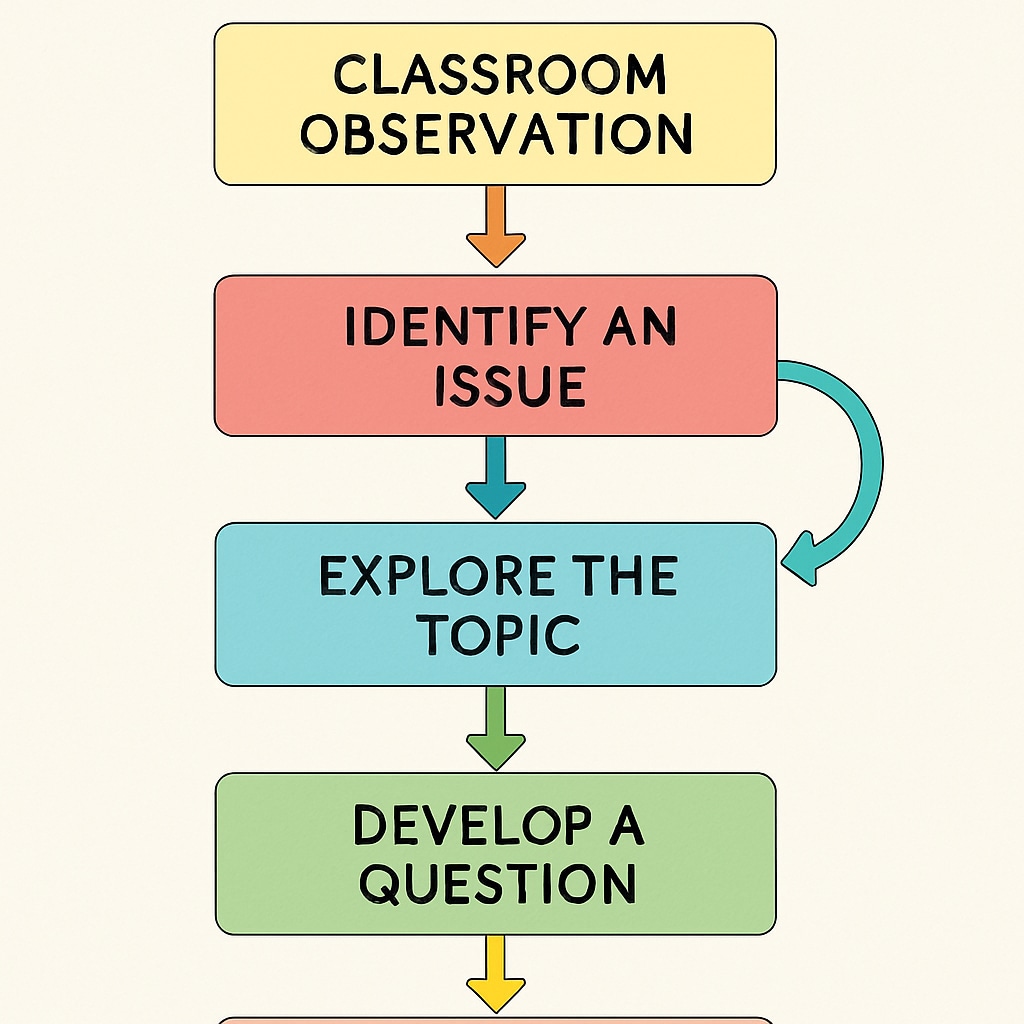Research question formulation helps K12 educators bridge the gap between classroom challenges and meaningful educational research. Many teachers encounter daily instructional dilemmas that could become valuable research topics, yet struggle to frame them as actionable inquiries. This guide provides a systematic approach to developing research questions that drive meaningful classroom improvements.
The Importance of Proper Research Question Development
High-quality research questions serve as the foundation for impactful educational studies. According to the Wikipedia article on research questions, they should be:
- Clear and focused
- Answerable through investigation
- Relevant to educational practice
- Open to exploration rather than simple yes/no answers

Five Steps to Formulate Effective Research Questions
The following framework helps educators transform teaching challenges into researchable questions:
- Identify classroom challenges: Document recurring issues affecting student learning
- Narrow the focus: Select one specific aspect that needs investigation
- Review existing literature: Check what previous studies reveal about your topic
- Frame the inquiry: Use open-ended question starters like “How…” or “What impact…”
- Test for feasibility: Ensure the question can be answered within your resources
As noted by Britannica’s educational research overview, well-formulated questions often lead to more practical classroom applications.

Common Pitfalls in Academic Inquiry Design
Teachers should avoid these frequent mistakes when developing research questions:
- Questions that are too broad (“How to improve math education?”)
- Questions requiring unavailable data or resources
- Leading questions that suggest predetermined answers
- Questions unrelated to actual classroom needs
Instead, focus on specific, measurable aspects of teaching practice. For example: “What impact does peer feedback have on writing revision quality in 8th grade ELA classes?”
Readability guidance: Use short paragraphs and lists to summarize key points; include transition words like however, therefore, and for example; maintain active voice throughout the article.


